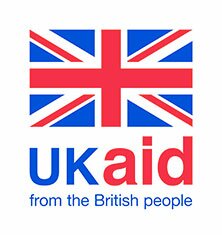Resource centre
Towards shock-responsive social protection: lessons from the COVID-19 response in Pakistan: Estimate from the microsimulation
This report presents the methodology and results of a microsimulation based on a partial equilibrium modelling framework using nationally representative household-level data for Pakistan. The findings include an estimate of the potential impact of COVID-19 on poverty in the country based on a model that assumes heterogeneity of impact across individuals and households depending on the type and sector of employment. Moreover, the model is used to assess the effectiveness, coverage, and adequacy of the social protection response to COVID-19. The microsimulation results complement a larger Pakistan country case study that documents the way in which social protection programmes, processes, and delivery systems have been used to respond to the COVID-19 crisis.
Brief: Towards shock-responsive social protection: lessons from the COVID-19 response in Pakistan
This policy brief draws on key learnings from the Pakistan research report on the social protection responses to COVID-19. The brief provides analysis of the factors that enabled and constrained the effectiveness of the delivery of social protection in Pakistan and also provides recommendations to improve preparedness to future shocks including the need to more clearly define provincial mandates on shock-responsive social protection
Towards shock-responsive social protection: lessons from the COVID-19 response in Pakistan
The stringent lockdown measures and global economic slowdown, due to COVID-19, are likely to increase the poverty rate in Pakistan by 35 percentage points in urban areas and 32 percentage points in rural areas. The report documents the Government of Pakistan’s social protection response to mitigate the impact of COVID-19 on vulnerable populations. It also analyses the factors that enabled and constrained the effectiveness of the response, at the policy and operational levels. The report finds that the response achieved impressive coverage in a timely and effective manner, enabled by government ownership and coordination. At the same time, the response’s impact on poverty is estimated to be marginal due to an inadequate benefit value driven by financing constraints. Finally, the report also provides an assessment of the response in terms of comprehensiveness and gender and social inclusion considerations.
Conceptual framework for studying social protection responses to COVID-19
In response to the COVID-19 pandemic, more than 200 countries/territories have expanded and adapted their social protection systems to mitigate the economic impact of the pandemic. Maintains is conducting a cross-country study to provide an operational assessment of these social protection responses using the conceptual framework and research questions described in this note.
Authored by Rodolfo Beazley, with Alexandra Doyle, Madhumitha Hebbar, Karin Seyfert, and Ludovico Carraro
All Maintains evidence and articles relating to COVID-19 can be found here.






